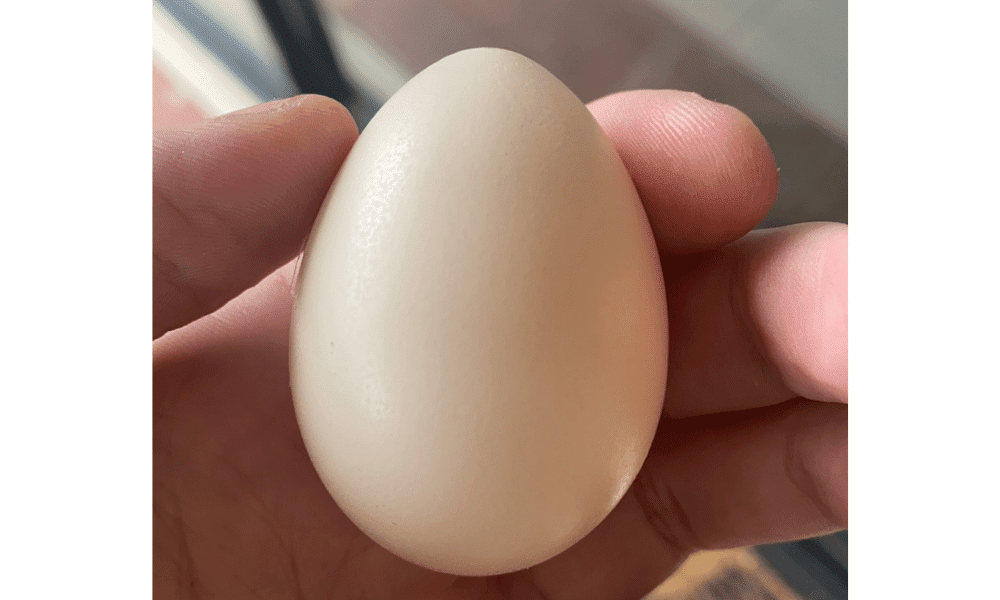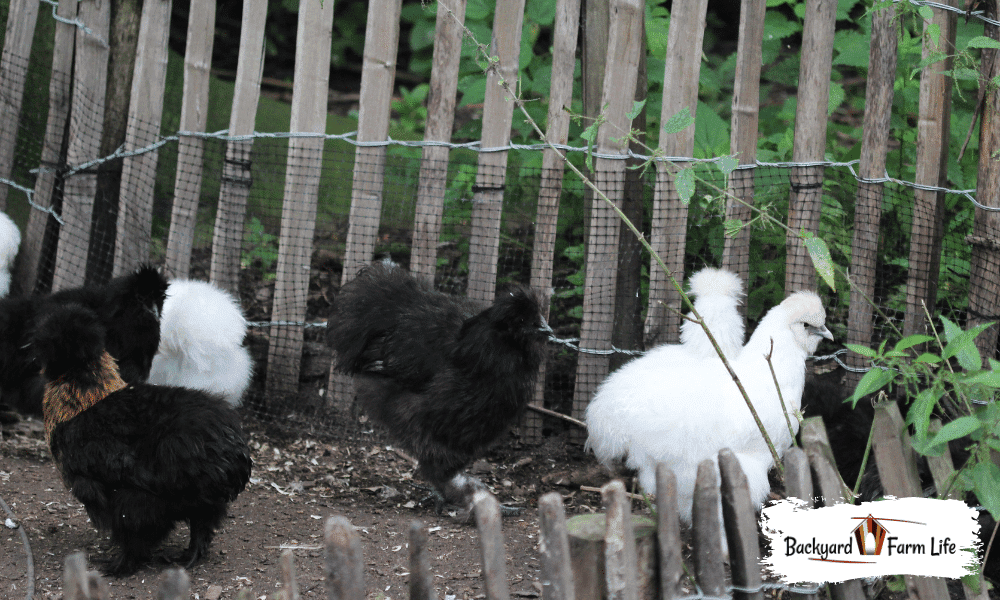One of the most invigorating feelings in the whole wide backyard farming world is finding a chicken’s first laid egg!
Some chicken breeds are known to lay eggs after only a few short months, but for Silkies, well, you better be prepared to play the waiting game.
But as they say, you can’t rush perfection, right?
So, for all those new Silkie owners or those who are thinking about raising Silkies, here’s how long it takes before silkies start laying eggs, how many eggs you should expect from your Silkies, and how to encourage them to start laying!
Contents
When Do Silkies Start Laying Eggs?

Chickens come in all sorts of sizes, colors, types, and breeds. Some are known to develop quickly and lay eggs from as young as 4 months old, some require a bit more patience!
So where do Silkies fit in the mix when it comes to laying their first eggs?
Well, although Silkies are considered fully grown by around four to five months, they don’t reach maturity in their egg production until a lot later.
Normally, Silkies will start laying eggs at the age of 7-9 months, should their diet, health, and environment allow them to.
However, in rare cases, a Silkie can take up to 12 months or longer to lay its first egg. Some hens just need a bit more time until they are ready!
This happened to one of my Silkie hens – NeNe, who took a whole 12 months before she started laying!
How Many Eggs Do Silkies Lay?
Once you’ve had a taste of your very own Silkie egg you’re going to be addicted. It’s only natural you’re going to want to know how often you’ll be able to consume these rich, vibrant eggs.
Once your Silkies have started laying their first eggs you can expect them to lay on average 120-150 eggs per year or 10-15 eggs per month per Silkie.
However, instead of laying one egg per three days, Silkies will normally lay daily for a period of time, then stop, sometimes go broody, recover, and then start their next laying cycle after a week or two.
From a biological perspective, it’s normal to lay a whole clutch of eggs and then sit on them to brood them. Although the Silkie’s eggs may not even be fertilized, they do keep this innate behavior.
Why Have My Silkies Not Started Laying Eggs?

If your Silkies are approaching the 7-9 months age or older and they still haven’t started laying, it’s normal to get a bit curious as to why.
Owners often jump to conclusions about an inconsistent diet or not enough protein. But, there are actually a few other reasons why they may not have started laying yet!
Some of the most common reasons Silkies may not have laid their first eggs are:
- Diet and Nutrition
- Environmental Issues
- You’ve Actually Got A Silkie Rooster — Not Hen!
Diet & Nutrition
Without getting too crazy about it, a Silkies diet should consist of protein, fats, carbohydrates, vitamins, and minerals.
A mature-aged Silkie should be consuming between 16-18% protein, having adequate calcium for strong egg shell formation, and having enough of their other essential vitamins and minerals to remain healthy, regular, and most importantly, happy.
All of these dietary requirements are covered if you supply them with a high-grade poultry feed mix. Whether it’s in pellet form solely, a pellet and seed mix, or just seeds.
Although it’s inevitable that your Silkies will forage around the yard, their diet should be made up of at least 90% of these optimally formulated chicken feed mixes.
Young silkies that do not consume enough of their essential nutritional needs will be less likely to lay eggs, slower to develop, and more likely to come across health complications.
Environmental Issues
Just as important as nutrition, Silkies need to feel comfortable and be in a healthy state of mind and well-being to lay their eggs normally.
Common environmental issues that cause delays or hiatuses in egg production include:
-
- Recently transported chickens, who have moved to a new home or new coop.
- Recent exposure to predators or perceived predators.
- A coop that’s too small or too big.
- Enough suitable nesting boxes for your flock.
- No access to direct sunlight.
- A coop that’s too cold or too warm.
You’ve Got A Silkie Rooster!
Unlike other chicken breeds where it can be fairly obvious at a young age to tell whether you’ve got yourself a hen or rooster, Silkies can be somewhat perplexing.
You’d be surprised at how many chicken owners swear they have a Silkie hen, only to find out that it’s actually a rooster!
If it’s been 9+ months and there are no signs of eggs you might want to do a bit of a sense check and have a look to see the physical differences between Silkie hens vs. Silkie roosters.
How To Encourage Silkies To Start Laying Eggs
Unfortunately, there is no on-off switch you can flick to suddenly get your Silkies to start laying. However, there are a few things you can do to ensure all the optimal egg-laying conditions are met to encourage your Silkies to start laying when they are ready!
The main thing is to be patient.
Ensure your Silkies are getting enough protein, and calcium, and are eating their formulated pellets or layer seed mix for at least 90% of their diet.
Avoid feeding your chooks treats with little to no nutritional value, instead try scrambled eggs (with eggshells in), or other high-protein foods. Keeping up these healthy habits will also increase your Silkie’s egg-laying longevity!
Be sure you’ve set up a comfortable place for them to start laying their eggs, and they have enough space in the coop as well as in the run.
Remember, every chicken develops differently, it’s natural for some Silkies to take an extra month or too than the others!
Expect your Silkie’s first eggs to be rather sporadic as they learn the egg-laying process.
That’s All Folks!
Silkies are incredible. But, you do need to be patient when it comes to waiting for their first eggs.
So long as a SIlkie has a consistent and regular diet, is housed in appropriate housing, and IS actually a hen, then you can expect them to start laying between 7-9 months old.
Some do take a bit longer though, like my Silkie NeNe, and there’s not a lot you can do about it than be patient!
To encourage your Silkies to lay eggs, simply be sure they are having enough protein and other essential nutrients, have an appropriate space to lay their eggs, and are receiving plenty of love.
Happy backyard farming everyone!
